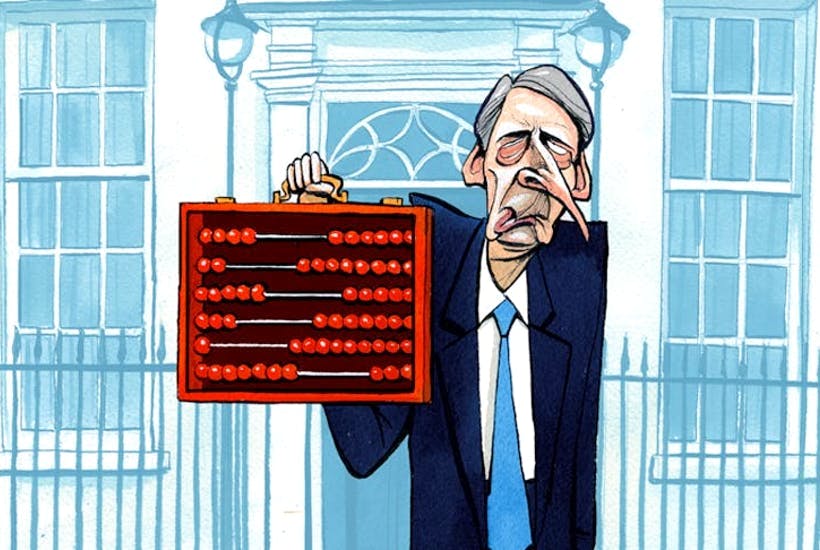Philip Hammond is up to one last trick before bowing out – and it’s a good one. The Chancellor has called on each of the Tory leadership candidates to commit to ensuring Britain’s debt falls as a share of national income every year. Hammond reportedly asked in a letter to leadership candidates:
‘If we do not commit to getting our debt down after a nine-year run of uninterrupted economic growth, how can we demonstrate a dividing line between the fiscal responsibility of our party and the reckless promises of John McDonnell and Jeremy Corbyn?’
Playing Labour-lite – promising just a little less spending than socialists Jeremy Corbyn and John McDonnell – is not only fiscally irresponsible but provides political cover for their reckless plans.
For the leadership candidates’ immediate political self-interest, they should realise that promising higher spending is no way to endear themselves to the austere Tory membership. These are the people who went around the country justifying fiscal restraint during the Cameron-Osborne era. They will not look kindly on a leader who wants to undo their hard-won political battles.
The obligation of every government – particularly one that calls itself “Conservative” – is to protect the world for the next generation. Edmund Burke once wrote that society is a contract ‘not only between those who are living, but between those who are living, those who are dead, and those who are to be born.’
But this contract is perilously close to breaking point as large debts and spending commitments create a fiscal minefield for my own and the next generation. In the coming years, retiring baby boomers will place increasing strain on the public healthcare system, social security payments and social care funding. This will mean fewer Millennial and Generation Z workers paying higher taxes to support a growing number of retirees who, thanks to modern medicine, are living for longer.
Wall Street Journal columnist Joseph Sternberg’s new book, The Theft of a Decade, argues that baby boomers have screwed over millennials’ economic future. Sternberg cites booming college loan costs, the housing crisis, and the labour market, as well as boomers’ taxing, spending and borrowing choices. Sternberg writes:
‘Boomers’ fiscal capers are more like a bank robbery in the early hours of a Saturday morning on Memorial Day weekend. The robbery is already over—the vault is empty— but no one will see what happened until the bank reopens on Tuesday morning. The Boomers’ fingerprints are all over the crime scene.’
We are living in relatively strong economic times but not saving anywhere near enough for the possibility of a future recession or longer-term structural issues. The UK already has £1.83 trillion in national debt; small surpluses will not pay this down for decades. What’s more, the Adam Smith Institute has calculated that unfunded public sector pensions and other unfunded government schemes add up to £1.85 trillion in liabilities. This is the equivalent to £53,822 for every man, woman and child.
If a household had a mountain of debt they would reign in spending. But sadly the inclination in politics appears to be to do the opposite and return to unsustainable public spending. Last year, Theresa May declared at Conservative party conference that austerity is ‘over’. Her successor would be wise not to make such promises, particularly while a deficit still exists in Britain.
David Cameron and George Osborne put Britain back on to solid financial ground. This created the circumstances necessary for the strong employment, declining levels of relative poverty and economic growth we have witnessed in recent years. Hammond is hardly one to show off but his legacy is something to be proud of: the Chancellor has fought to keep the country’s finances on a steady course despite pressure from all sides to splash the cash. The next Tory leader – whoever it is – would be wise to listen to Hammond’s advice.
Matthew Lesh is head of research at the Adam Smith Institute






Comments